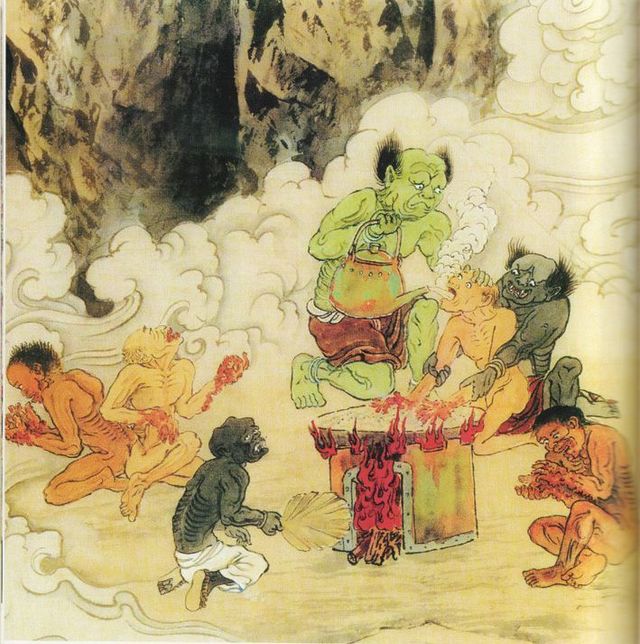 |
| Buddhist Bardo |
Friend Xerxes declares, without details, that he came to a “rational conclusion” long ago that there is no afterlife.
Yet he then presents evidence from his own experience that there is an afterlife. He hears his late wife’s voice; he feels her move beside him in the bed.
He dismisses it only by denying Aristotle’s Law of Non-Contradiction, which is the foundation of all rational thought. He says there is no “either/or,” only “both/and.”
In other words, his belief that there is no afterlife is unmoveable by either reason or evidence. The phrase “long ago” here is telling: he, like many another, has his heart set on no life after death, and will not permit himself to think any more about it. It is a doctrine in literal denial of both reason and evidence. On what basis, then, does h hold it?
The New Atheists commonly claim that belief in an afterlife is wish fulfillment. “Pie in the sky when you die.” This is projection. Most people do not want there to be an afterlife. If there is no afterlife, we can do as we please here and now and get away with it.
The concept of an afterlife comes with the concept of cosmic justice, and always has, world-wide. We will one day stand naked before God, all our acts revealed. We must submit to a higher authority than ourselves. According to the Ojibwe, wild dogs will tear us apart for our sins. In Hindu or Buddhist terms, we must pay our karmic debt. Merely ceasing to exist, to break this cycle, is the ultimate Buddhist or Hindu hope: “nirvana” means non-being.
As with so many, Xerxes does not believe in an afterlife because he does not want there to be an afterlife. There is nothing to fear in simply going sleep and never waking up; there is nothing to fear in being blown out like a candle.
On the other hand, his love of his late wife is saying something different. Love speaks of the eternal. Or his wife is herself calling him, out of her love for him.












No comments:
Post a Comment